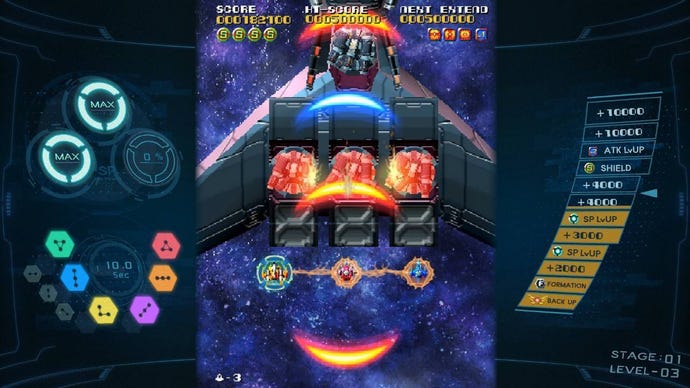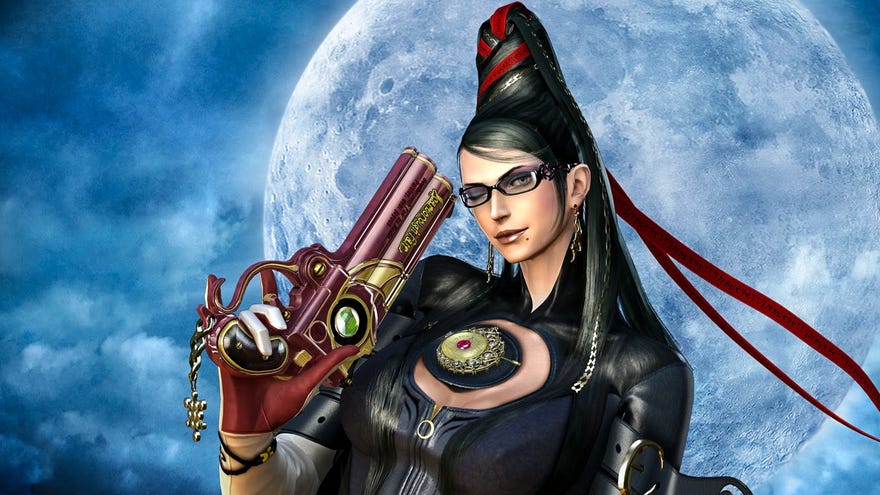Bayonetta creator Hideki Kamiya wants us to drop the "retro" game label
But is pretty keen on "JRPG"
PlatinumGames co-founder, Bayonetta director and celebrated Twitter shoutyman Hideki Kamiya would like the "retro" game label to go out of fashion. His argument is that calling something "retro" is inherently condescending - each game has its own particular achievements and qualities that deserve to be understood in terms of more than just nostalgia cultivated by a novelty-driven industry. After all, Johnny 90s Developer didn't spend months knocking together a bespoke cover system or fancy artstyle so that you could badge it "quaint", "old school" and so on, 30 years later. Assuming you can still access the game at all.
"I don't like the word 'retro game'," Kamiya told VGC in a wide-ranging interview also notable for some chunky insights on onomatopoeia in Japanese manga and its US adaptations. "I'm obviously not a native English speaker so it might be something I'm interpreting from a Japanese perspective, but hearing the word 'retro' from a Japanese viewpoint, suggests more of a 'fad' brought back from a past era and reskinned for the current era."
"So I prefer the terms 'old games' or 'classic games', because they show more respect to those games of the past. I love games from all generations, and just because the game is 'retro' doesn't mean it's retro, because it's the same game that existed years or decades ago - it still exists and it's still playable and it's still an experience that's very unique in its own right - so there's really no need to refer to it as 'retro' because it still does have special memories and experiences that stay with you after all these years."
Kamiya illustrated his criticism with reference to Platinum's own vertically scrolling schmup Sol Cresta, fifth in a series that dates back to the late 90s, which released as part of the studio's "Neo-Classic Arcade" range, and features an outlandish formation system. "We didn't make Sol Cresta to imitate the games of the past and bring back nostalgia, it was more than that. We wanted to make a vertical scrolling shoot 'em up combined with our desire to introduce unique concepts in each of our games."

I'm not wildly keen on the "retro" label either, though I think it does some service in providing older titles with a commercial niche to shelter in. I think we default to discussing retro games as though they were just steps along the way to whatever the present, perfected form of that game happens to be - which will, in turn, get demoted to "retro" status in years to come. None of which is to disparage retro-themed games, which are a genre rather than some kind of loose period classification, or the people who operate retro games websites and save these ancient titles for posterity.
Elsewhere in the same chat, Kamiya went long on the "JRPG" label. Unlike Naoki Yoshida, producer of Final Fantasy 16 (which is absolutely, certainly coming to PC at some stage) he doesn't consider it to be a "discriminatory" term that silos off Japanese developers from their peers in other markets, but a celebration of the specificity of Japanese art. "I have a positive sentiment when it comes to the term JRPG. Indeed, I think it's something that we should be proud of."
Kamiya drew parallels with the creation of Bayonetta, which began development in 2007, and which he was keen to distinguish from action games developed overseas - specifically, the bulkier Ancient (or should that be Retro?) Grecian varieties. "When you look at God of War, you have Kratos. He's muscly, he's huge, he's bald, he looks really kick-ass, basically. So we thought 'okay, we have games like this which are becoming more popular globally, could we create something similar from a Japanese standpoint?'
"We discussed this internally and the conclusion was that no, we obviously can't, because this is something that's not unique to us as Japanese creators. So in order to make an action game that would stand out we needed to create something that expressed our unique sensitivities as Japanese creators, and Bayonetta was a result of that.
"When you look at Bayonetta as a character, she doesn't look strong like Kratos, she doesn't look like she could take on these massive demons, but she was very unique in the way she was created, in the way we view action game heroes, from a unique Japanese viewpoint."
It's perhaps worth adding that Bayonetta is also awash with celebratory nods to artworks of all ages, from games like Space Harrier and Alex Kidd to Swan Lake and Cowboy Bebop. It's a cross-section of cultural influences that doesn't allow itself to be governed by chronology.
One thing all this leaves me wondering about is what the equivalent term for "retro" is in Japanese, and whether it means quite the same thing. If you have insights, I'd love to read them. In the meantime, here's a list of ZX Spectrum games that ought to be on Steam.

